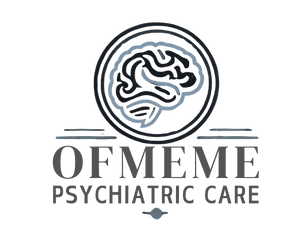Attention-Deficit/Hyperactivity Disorder (ADHD) is commonly associated with children, but it is a condition that often persists into adulthood. Many adults may not even realize they have ADHD, as the symptoms can be subtle or attributed to other life factors. However, adult ADHD can significantly affect various aspects of life, from work and relationships to everyday responsibilities. This blog post will explore what ADHD looks like in adults, how it can impact daily life, and what treatment options are available to help manage the condition.
Signs and Symptoms of Adult ADHD
ADHD in adults is typically categorized by two main types of symptoms: inattention and hyperactivity/impulsivity.
While some individuals experience both, others may struggle more with one type than the other. Here are some common signs of adult ADHD:
- Inattention: Adults with ADHD often have difficulty focusing on tasks, especially tasks considered boring or repetitive. They may frequently lose items, forget appointments, or struggle to stay organized. This inattention can manifest as zoning out during conversations, making careless mistakes at work, or having difficulty completing tasks.
- Hyperactivity: Although hyperactivity is more noticeable in children, some adults with ADHD still experience feelings of restlessness. They may find it hard to sit still for long periods, feel the need to fidget or struggle with staying quiet in situations where calm is expected.
- Impulsivity: Impulsive behaviors, such as interrupting conversations, making rash decisions without thinking, or struggling to wait their turn, are common in adults with ADHD. This can lead to difficulty in maintaining relationships, managing finances, or staying consistent with plans.
The Impact of ADHD on Adult Life
ADHD can significantly affect various areas of an adult’s life, often in ways that are both frustrating and overwhelming. Some common challenges include:
- Work Performance: Adults with ADHD may struggle with time management, staying on task, or following through on long-term projects. This can lead to missed deadlines, job dissatisfaction, or underachievement despite potential.
- Relationships: Maintaining stable relationships can be difficult for adults with ADHD. Impulsive decisions, lack of focus, and forgetfulness may lead to misunderstandings or feelings of neglect from partners, friends, or family members.
- Daily Organization: Everyday tasks like paying bills, cleaning the house, or managing a schedule can be overwhelming for adults with ADHD. They may frequently start tasks without finishing them or misplace important items, leading to stress and frustration.
Diagnosing Adult ADHD
Many adults with ADHD go undiagnosed for years because their symptoms were either overlooked during childhood or misunderstood as other issues, such as anxiety or mood disorders.
Adult ADHD is very real and it can be a challenging condition, but with the right support and treatment, individuals can learn to manage their symptoms and lead fulfilling lives. If you suspect that you have ADHD, it’s essential to consult with a healthcare professional for a proper evaluation.





